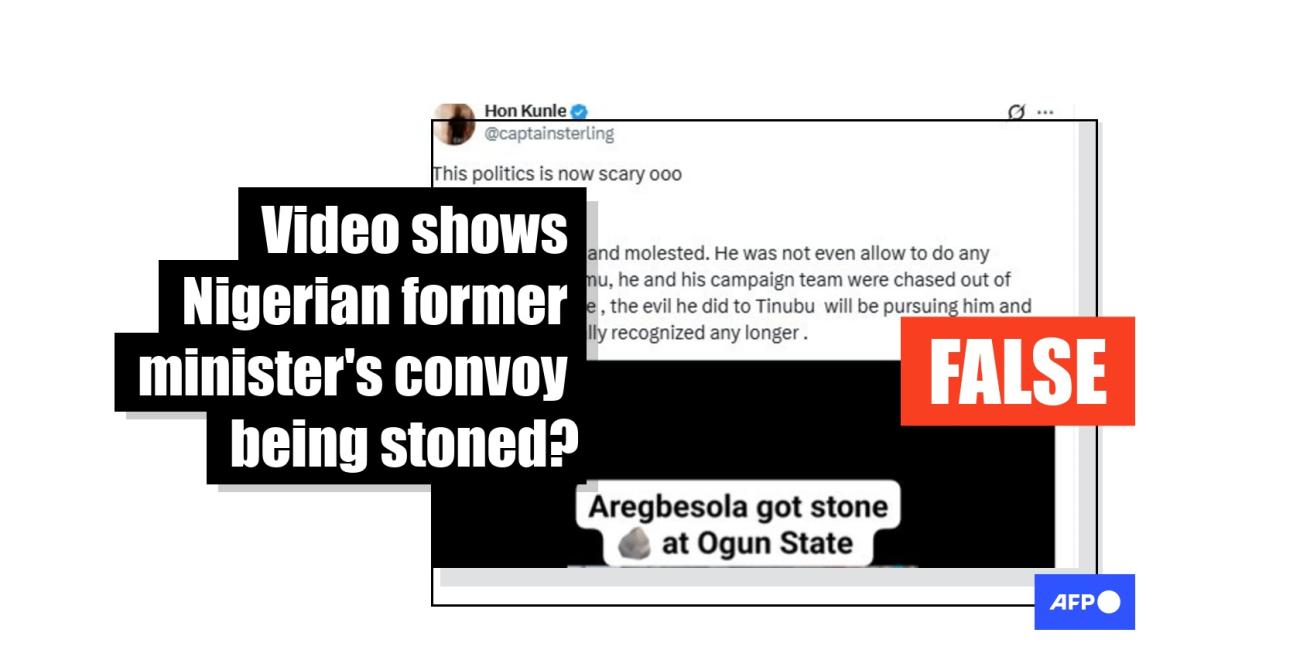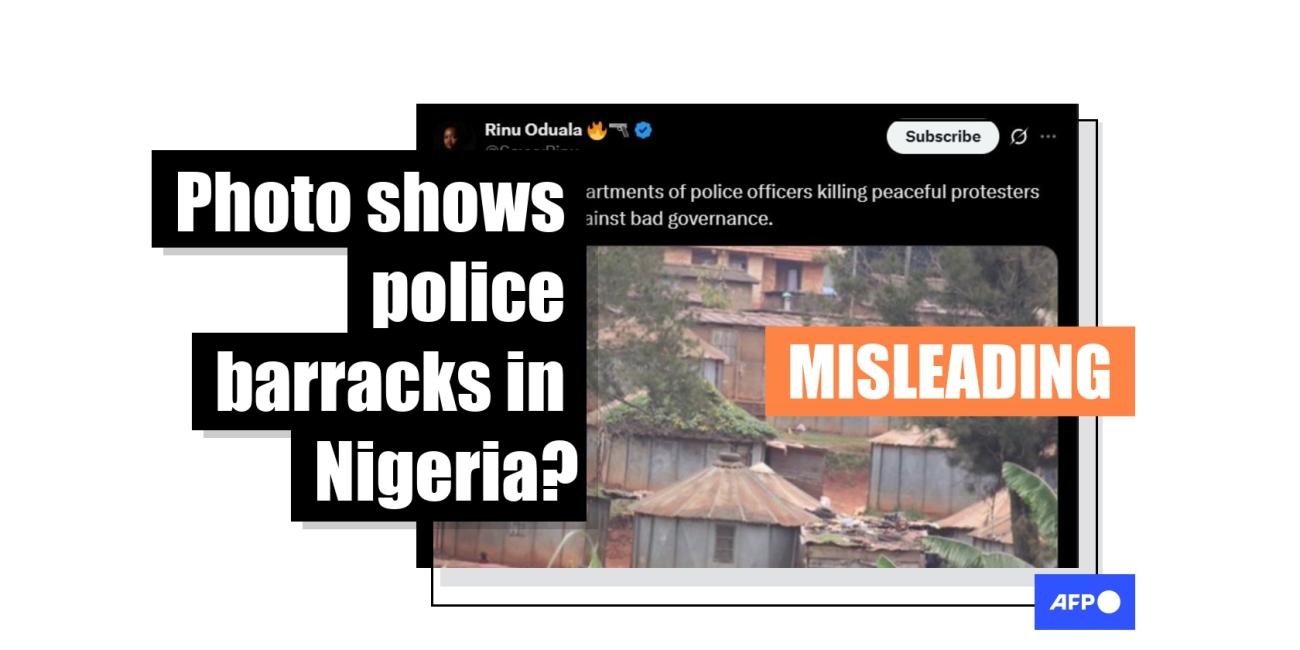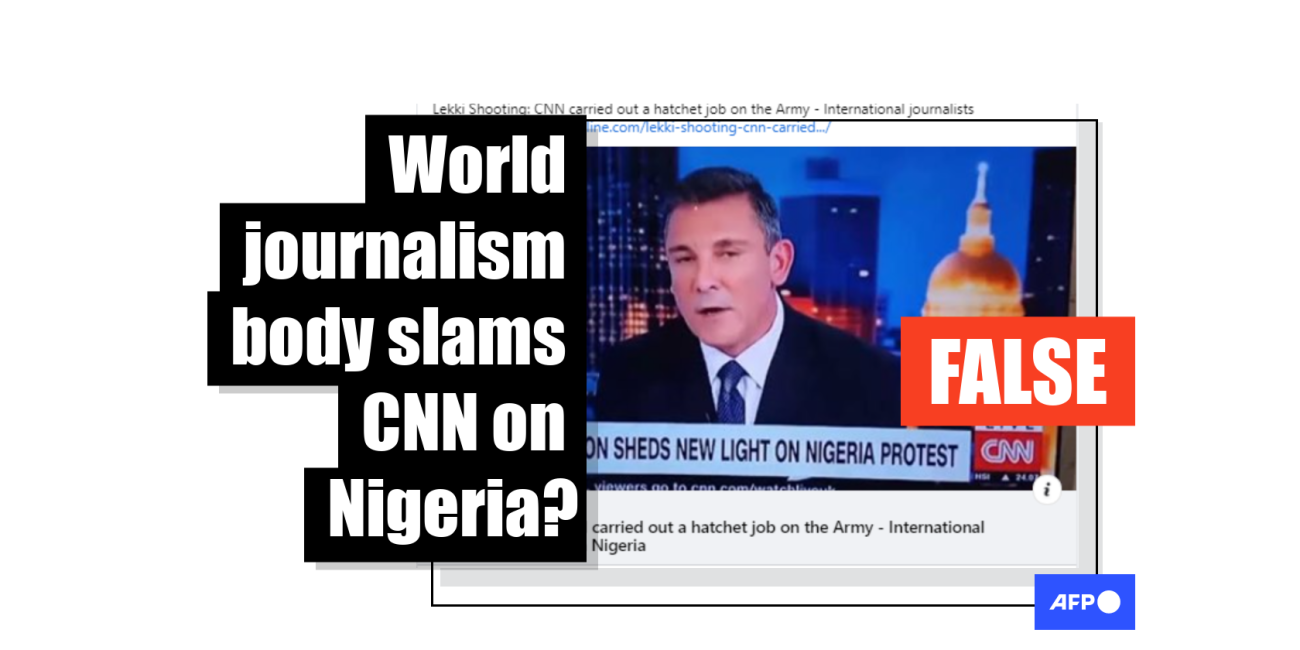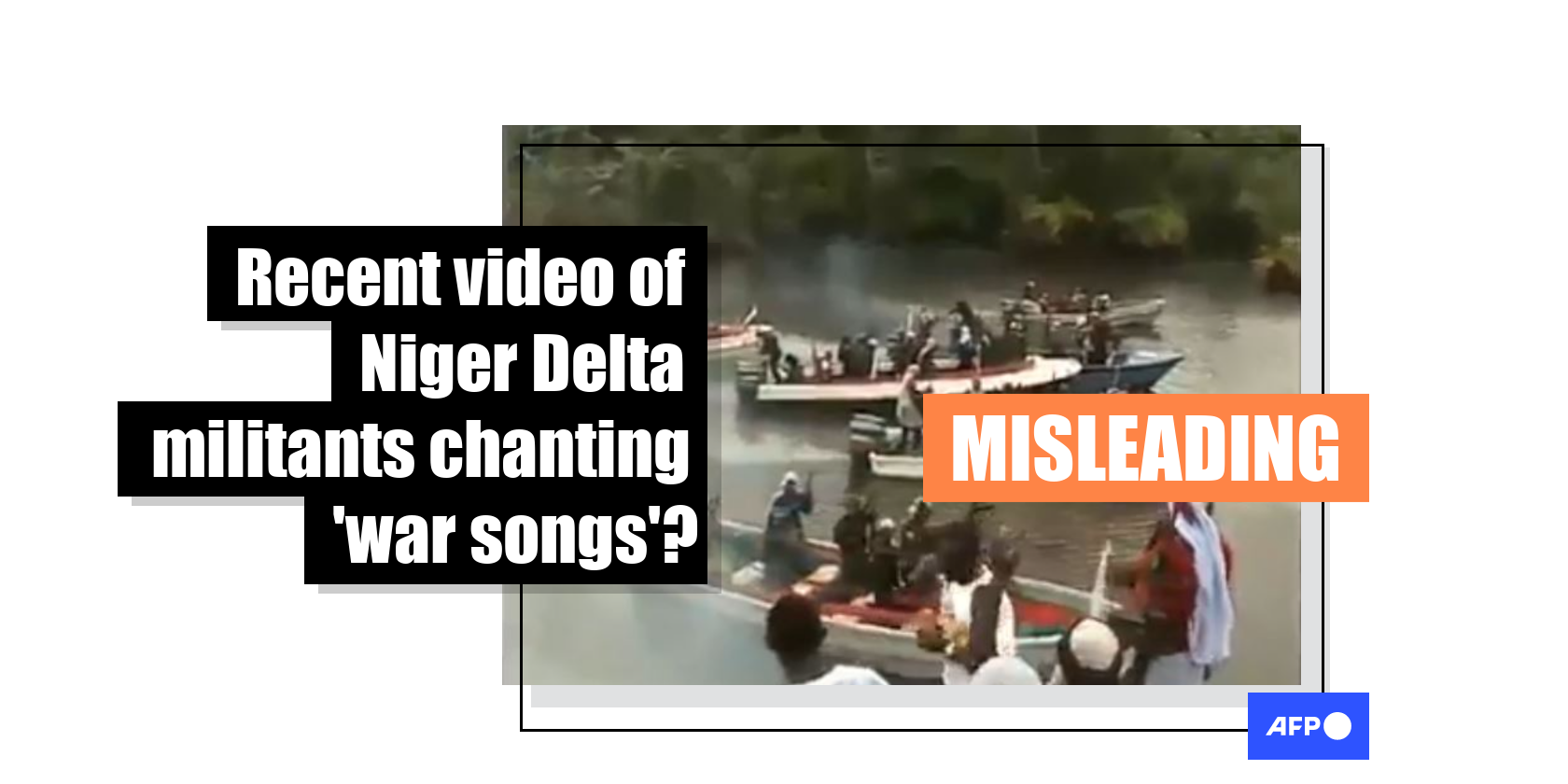
The footage from 2017 is unrelated to protests against police brutality in Nigeria
- This article is more than five years old.
- Published on October 26, 2020 at 15:51
- Updated on October 26, 2020 at 17:06
- 2 min read
- By Segun OLAKOYENIKAN, AFP Nigeria
The clip has circulated in numerous social media posts, including this one on Facebook which has been shared nearly 3,000 times since it was published on October 21, 2020 -- a day after Nigeria’s security forces opened fire on peaceful protesters at the Lekki toll gate in Lagos.
“MILITANTS CHANTING WAR SONGS.....TO FACE FG (sic),” the post's caption reads. “As protests against bad governance and police brutality continues, Militants from Niger Delta were seeing parading with Speed boats, chanting war songs with dangerous weapons (sic).”
“FG” in this case refers to Nigeria’s federal government.
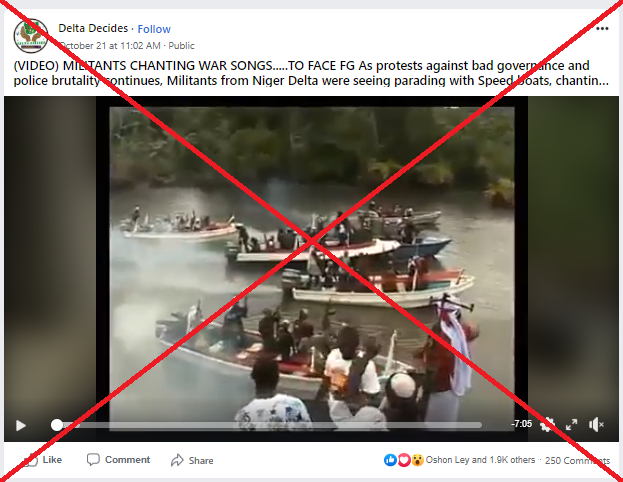
Niger Delta is Nigeria’s oil-rich but impoverished region tormented by years of violent attacks, including kidnappings and the destruction of oil installations, by militants demanding a fairer share of revenues for local people.
The conflict was temporarily curtailed in 2009 when Africa’s largest oil producer, which depends on the commodity for revenue and foreign exchange earnings, introduced a government amnesty programme.
The same footage of armed men in a flotilla was also shared on Twitter, as well as elsewhere on Facebook alongside a similar claim.
Protests against police violence
Protests against police brutality erupted in Nigeria in early October after a video of a man allegedly being killed by police went viral a month before.
The rallies have continued despite the dismantling of the controversial Special Anti-Robbery Squad (SARS) and promises of government reform.
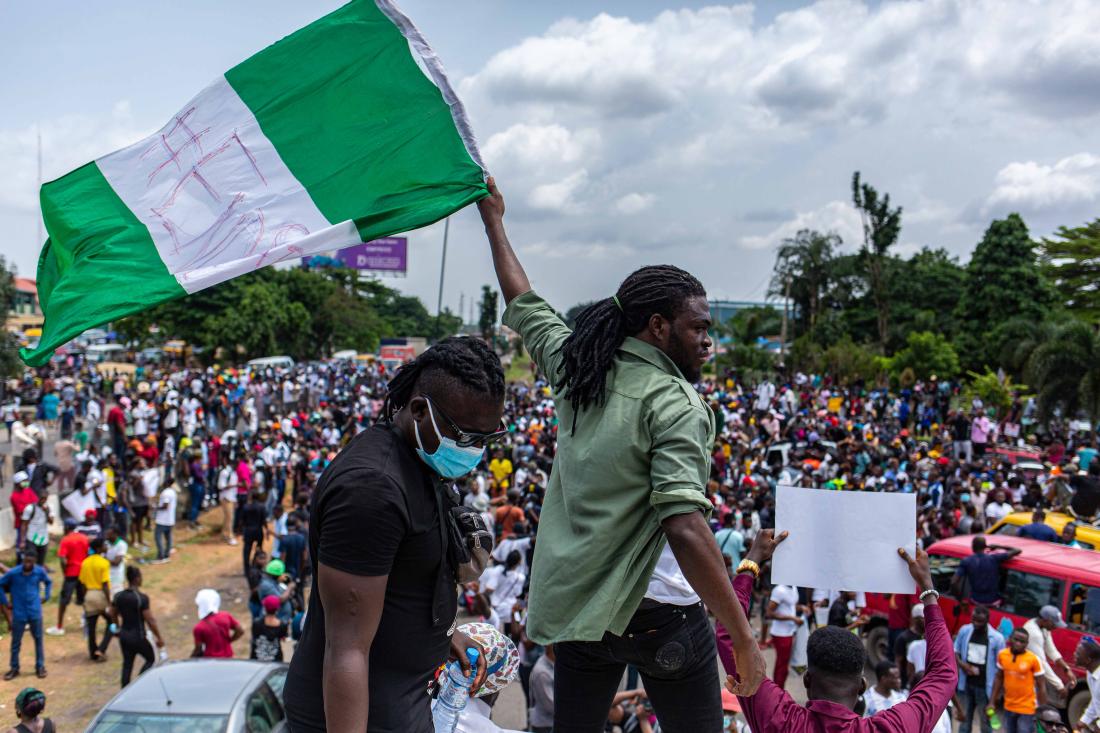
The unrest worsened after security forces opened fire on a large crowd in Lagos on October 20, 2020. The shooting has drawn international condemnation and boosted the global spread of the #EndSARS hashtag on Twitter.
But while some ex-militants indeed issued a threat to the Nigerian government, as reported by the country’s daily newspapers The Punch and ThisDay, the video in the claim has been online since at least 2017.
Using the InVID WeVerify tool, AFP Fact Check ran a reverse image search on keyframes of the video and found it was published on YouTube on June 11, 2017.
The viral footage is among several examples of multimedia content that has been shared out of context in the wake of the unrest in Nigeria. AFP Fact Check recently debunked online posts sharing a video of a military gunner firing into the night with a claim that it shows how troops used live ammunition on civilians during the anti-police brutality protests.
Copyright © AFP 2017-2026. Any commercial use of this content requires a subscription. Click here to find out more.
Is there content that you would like AFP to fact-check? Get in touch.
Contact us
